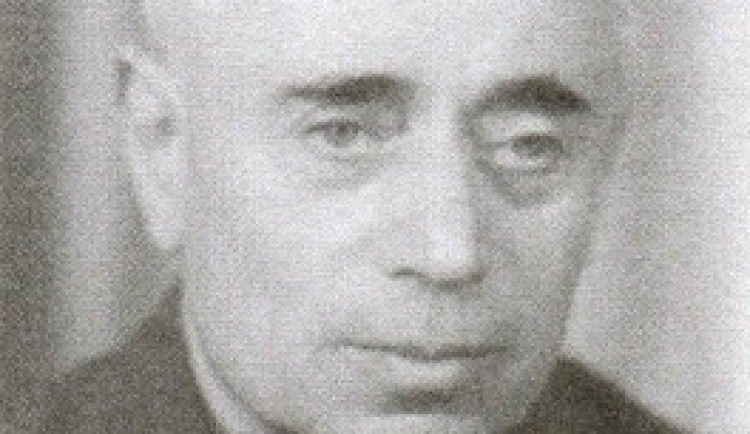Aleksandr Semenduev was born in 1916 in Derbent, Dagestan, in southern Russia, into a family of Mountain Jews. His father Shoul Semendu was a barrel-maker but he was also known as an ashugh (or oshug in the Judeo-Tat pronunciation), a singer, and a folk poet (mainly in the Azerbaijani language). Aleksandr inherited his father's musical talent: he played mandolin and sang. From 1932 to 1934, he worked as a teacher in a Jewish elementary school in Derbent. At that time, he published his first poems written in the Judeo-Tat, or Juhuri, language, the tongue of the Mountain Jews, in the Tat-language newspaper Zaħmәtkәş (or Zahmetkesh, lit. the Toiler). In 1934, the 18-year old poet took part in the first convention of Dagestani writers.
In 1936 Aleksandr entered the Tambov Technical Artillery School, from which he graduated in 1939 as an artillery technician, 2nd class. With the beginning of the Soviet-German war in June 1941, Semenduev was sent to the Western, then to the Southwestern Fronts, where he experienced the humiliating retreat of the Red Army in the summer of 1941. In October 1941, as an experienced military technician, Semenduev was sent to Moscow, where the formation of the first units of "guards mortars" or rocket launchers (commonly known as Katiushas) was taking place. In December, as an artillery technician of the 7th Separate Guard Mortar Battalion, he took part in the defense of Moscow and later participated in the Soviet counter-offensive from Moscow. For his part in these operations, Semenduev was recommended for the Order of the Red Star, but was awarded only the less prestigious medal For Courage. In 1942 and 1943, Aleksandr fought in northwestern Russia (Staraia Russa, etc.) and later in Ukraine, Poland, Germany, and Czechoslovakia. He ended the war in Prague. By the end of the war, he had been awarded two military orders and several medals.
After the war, Semenduev continued his army service. Since military technology had advanced rapidly, he had to continually study the new machinery and how it should be used. In 1960 Lieutenant-Colonel Semenduev retired from the army and settled in the Crimea, where he taught handicrafts at a school. He continued writing poems in Judeo-Tat and published them in the journal Vatan Sovetimu ("The Soviet Motherland"). His first collection of poetry was published in Makhachkala only in 1991.
In the 1990s, Aleksandr's elder son Gennadii was living in Israel. Aleksandr visited Israel twice: in 1996 and in 1998. When he was over 80, he began to study modern Hebrew and in a short time began to speak it. When Gennadii complimented him on his successes, his father replied "After all, my dear one, I did study in a kheider [a traditional Jewish elementary school]."
Aleksandr Semenduev died in 1999 in the Crimea.







